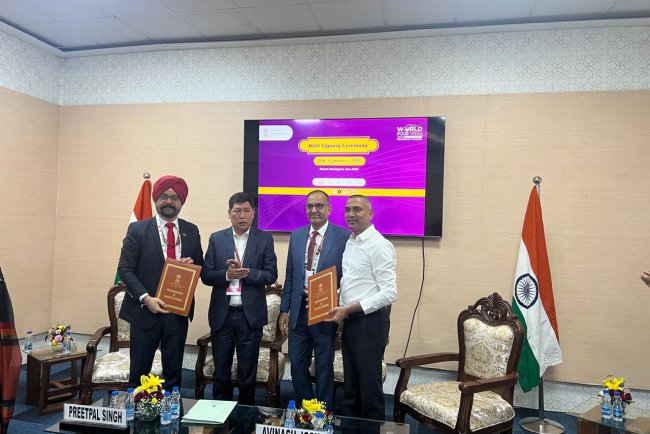Corporate Health Check Reveals Shift in Climate Action
CDP report reveals 80% of companies tie executive pay to climate targets, highlighting governance’s role.

Something is changing within corporate governance because companies around the world are bringing their strategies in line with pressing climate and environmental objectives. In its first CDP Corporate Health Check report, 80% of firms on track to meet their climate targets are aligning executive compensation directly with such achievement. This alignment underscores the growing emphasis on governance as a critical driver of environmental progress. The report, to be presented at the World Economic Forum in Davos, provides an overall assessment of corporate transparency, climate governance, and progress among companies that collectively represent 67% of global market value.
The results indicate a two-sided story of progress and gaps. Companies that are actively integrating climate strategies into their operations are found to have better environmental outcomes. Such organizations are more likely to use environmental data in business decisions, indicating an advanced approach to sustainability. However, there is a glaring disconnect between businesses that meet minimal compliance requirements and those using data for significant, Earth-positive decisions.
The most important actions taken by companies in order to become catalysts for environmental progress are linking executive pay to climate outcomes, which 78% of the companies that are making measurable progress have adopted. Another is internal carbon pricing, with 41% of the companies having implemented it, and 87% actively engaging their value chains, including suppliers and customers, in climate-related efforts. The journey remains arduous for many, however, as this integrated approach reshapes the landscape of corporate responsibility.
Only 10% of companies demonstrate meaningful ambition in critical areas such as emissions transparency (Scope 1, 2, and 3), nature impact, and robust sustainability strategies. Shockingly, only 1% of organizations have integrated all four levers of impactful environmental action: linking executive pay to climate outcomes, carbon pricing, comprehensive climate transition plans, and proactive value chain engagement.
Sherry Madera, executive director at CDP: "Disclosure alone will not drive action; integrating this disclosure data as a core dataset for key business decisions enables the levers to be pulled and the change we need to see," she says. Such is her perspective in light of report findings, which "stress that, while transparency is necessary, it is by itself not sufficient unless action is taken.".
James Davis, Partner at Oliver Wyman, underlines the need to fill the gap between disclosure and action. "The most effective strategies include transition plans, carbon pricing, value chain engagement, and linking executive pay to climate goals," he says. This is in line with Davis's observations as he points out the report's focus on actionable governance as a basis of corporate climate leadership.
This urgency is also reflected in the words of global leaders, such as Gim Huay Neo of the World Economic Forum. She stresses that businesses need to harness data, technology, and innovative partnerships to turn the climate crisis into an opportunity. Feike Sijbesma, Co-Chair of the WEF's Alliance of CEO Climate Leaders, urges bold, accelerated action. “Now is the opportunity for all stakeholders to act boldly and accelerate the pace of climate and nature action for a sustainable future,” he states.
The CDP report is timely, as the world is facing an intensifying climate and nature crisis. It is both a wake-up call and a blueprint for action, underlining the role of corporate leadership in addressing these global challenges. The findings emphasize that while progress is being made, it is neither uniform nor sufficient to meet the scale of the crisis.
The most promising trend is that companies which are making measurable progress have taken on climate transition plans. Nearly two-thirds of such companies have formal plans, while only 36% of the laggards do. This gap itself underlines the role of strategic foresight in managing the complexity of climate action.
However, the report also points to the limitations of current efforts. Many companies remain entrenched in a compliance-driven approach, lacking the ambition and integration needed for transformative change. The data paints a stark picture: while some businesses are taking decisive steps, a significant majority are yet to embrace comprehensive strategies that address both climate and nature impacts.
This clarion call to go deeper, further, and better in integrated approaches to sustainability has been a part of the CDP Corporate Health Check, calling companies out for tokenistic responses and forcing their operations toward a more authentic reflection of the principles of environmental stewardship. As the report reminds us, systemic change depends on the use of governance, data, and innovation.
This, presented at Davos, tells global business leaders the time for incrementalism has come to an end: the stakes are too high and the window is closing for action. Through bold, data-driven strategies, companies will be given a chance to meet the climate targets as well as redefine their role in the stewardship of a sustainable future.
What's Your Reaction?

















